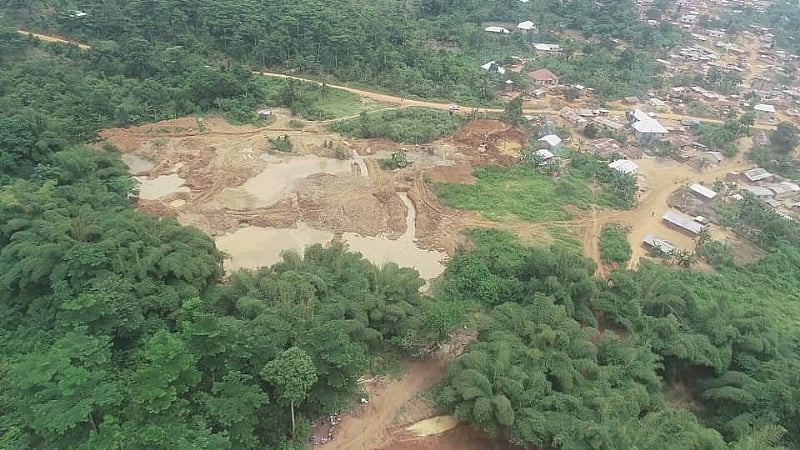Oseadeeyo Kwesi Kennin IV, the Paramount Chief of the Atti-Morkwa Traditional Area in Ghana’s Central Region, finds himself embroiled in a deepening legal saga amid allegations of illegal mining activities. His current predicament is not only defined by an ongoing lawsuit initiated by Kadesh Mining Enterprise, which accuses him of unauthorized operations on their mining concessions, but now also includes a recent suit from nine additional mining companies. These companies have collectively accused the Chief of illegally trespassing on their lands, thereby compounding his existing legal troubles. The ramifications of these accusations are significant, not just for the Chief but also for the surrounding community that relies on lawful mining operations for economic benefits.
In the latest development, the nine mining companies have formally taken the Paramount Chief to court, seeking judicial relief from his alleged encroachments on their mining territories. They are demanding a court order to restrain the Chief and his associates from further intrusion into their licensed areas, asserting that these activities are detrimental to their business interests and could potentially lead to environmental degradation. The companies’ suit illustrates the growing tension between traditional authority figures and the legal frameworks governing land and resource use in Ghana, highlighting the complexities of governance and resource management in the region.
The earlier lawsuit filed by Kadesh Mining Enterprise set a precedent in this escalating conflict. That case has already brought to light numerous illegal mining practices attributed to Oseadeeyo Kwesi Kennin IV, which have raised questions regarding his compliance with the laws governing natural resource extraction. As a traditional leader, the Chief’s actions are under scrutiny not only by affected companies but also by a public that may question the ethics of a chief involved in activities allegedly harmful to the community’s resources and well-being. This situation emphasizes the broader issues of governance and the responsibilities of traditional authorities in the context of modern legal frameworks.
During a court session held on October 23, 2024, his legal troubles took another turn as the presiding judge, His Lordship Samuel Faraday Johnson, adjourned the hearing to October 28, 2024. The judge acknowledged the pending ruling from the Kumasi High Court concerning jurisdictional matters relating to the earlier case with Kadesh Mining Enterprise. The decision regarding jurisdiction is crucial, as it will determine the court’s authority to hear the case and make binding decisions that could potentially impact the Chief’s future and the operations of mining companies in the region.
The additional lawsuit from the nine mining companies has implications that extend beyond the courtroom, raising questions about the enforcement of mining regulations and the protection of individual mining rights in Ghana. If the court finds in favor of the plaintiffs, Oseadeeyo Kwesi Kennin IV could face significant consequences, including compliance orders for remediation and penalties for any findings of illegal activities. This case will likely serve as a litmus test for how Ghanaian courts navigate the intersection of traditional authority and statutory law, particularly in sectors as economically significant as mining.
Overall, the situation involving Oseadeeyo Kwesi Kennin IV illustrates the complex interplay of traditional leadership, legal accountability, and the rights of businesses in resource management. As the legal proceedings unfold, stakeholders in the mining industry, local governance, and community representation will be watching closely. How this case is adjudicated could set important precedents for the relationship between traditional chiefs and modern legal practices, potentially influencing future governance structures and the sustainable management of natural resources in Ghana.


